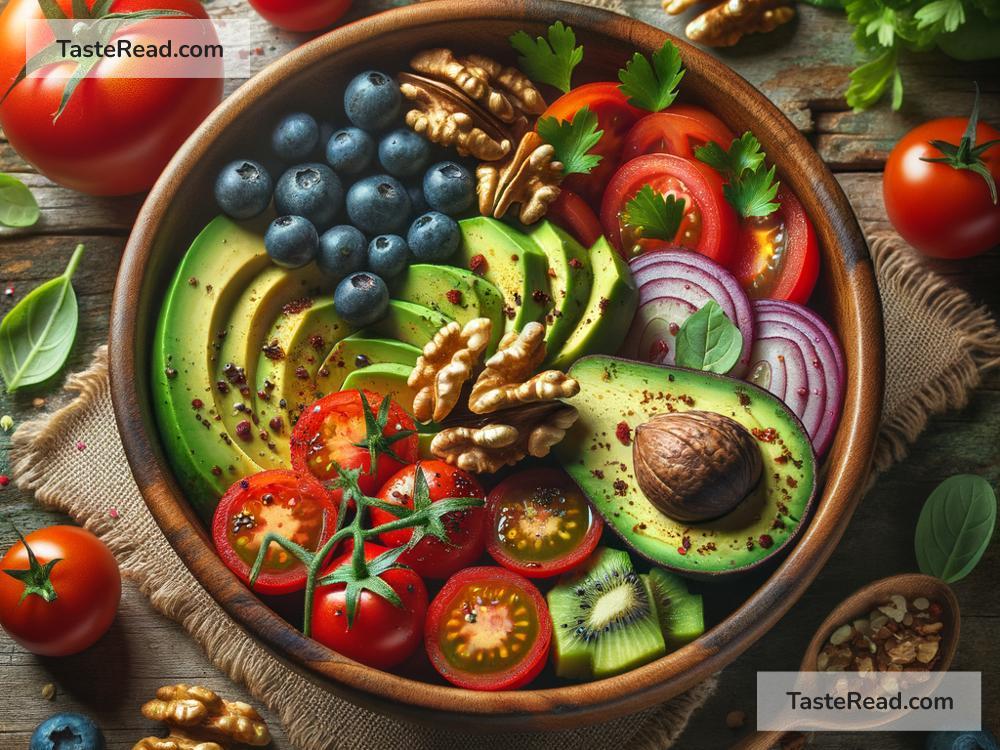Foods for Enhancing Prostate Health: Eat Your Way to Wellness
The prostate is a small, walnut-shaped organ that plays a key role in the male reproductive system by producing fluids that nourish and protect sperm. As men age, the risk of prostate-related issues, like benign prostatic hyperplasia (BPH) and prostate cancer, increases. However, good nutrition can make a big difference in keeping your prostate healthy. Let’s explore some foods that have been shown to support prostate health.
1. Tomatoes: A Superstar for Prostate Health
Tomatoes are rich in an antioxidant called lycopene. Lycopene gives tomatoes their red color and has been linked to a lower risk of prostate cancer. It’s believed that lycopene helps reduce inflammation and may slow the growth of prostate cells.
Cooked or processed tomatoes, like tomato sauce, paste, or juice, are especially rich in lycopene because cooking them breaks down cell walls, making the nutrient easier for your body to absorb. Pair tomato-based dishes with a bit of healthy fat, like olive oil, to further enhance absorption.
2. Cruciferous Vegetables: Nature’s Cancer Fighters
Cruciferous vegetables, such as broccoli, cauliflower, Brussels sprouts, kale, and cabbage, are known for their powerful cancer-fighting properties. These veggies contain compounds like sulforaphane and indoles, which help detoxify harmful substances in the body and reduce inflammation.
Regularly eating cruciferous vegetables is linked to a decreased risk of several cancers, including prostate cancer. Start small by adding a side of roasted broccoli or a handful of kale to your meals.
3. Pumpkin Seeds: Tiny Seeds, Big Benefits
Pumpkin seeds are high in zinc, which is critical for prostate health. The prostate naturally contains a high concentration of zinc, and getting enough of this mineral can help reduce inflammation and support healthy growth of prostate cells.
Pumpkin seeds also contain plant sterols and antioxidants that may improve urinary function in men with BPH (an enlarged prostate). Snack on a small handful of raw or roasted pumpkin seeds to enjoy these benefits.
4. Fatty Fish: Omega-3s for Prostate Protection
Cold-water fatty fish, like salmon, mackerel, sardines, and trout, are rich in omega-3 fatty acids. Omega-3s are healthy fats that reduce inflammation throughout the body, including the prostate.
Chronic inflammation is believed to play a role in the development of BPH and prostate cancer. Eating fatty fish at least twice a week is a simple way to give your prostate a boost. If you’re not a fan of fish, consider supplementing with high-quality omega-3 capsules or adding plant-based sources of omega-3s, such as flaxseeds and walnuts, to your diet.
5. Green Tea: Sip Your Way to Health
Green tea is packed with polyphenols and antioxidants that can help slow the progression of prostate cancer cells and reduce inflammation. Research suggests that compounds in green tea, like catechins, may prevent the growth of tumors in the prostate.
Aim to drink 1-2 cups of green tea daily for optimal results. If you’re sensitive to caffeine, opt for decaffeinated green tea—it still contains cancer-fighting compounds.
6. Berries: Sweet and Nutritious
Berries, such as strawberries, blueberries, raspberries, and blackberries, are loaded with antioxidants that fight free radicals in the body. Free radicals are unstable molecules that can cause cell damage and may contribute to prostate problems, including cancer.
Berries are also high in vitamin C, which supports immune function and helps reduce inflammation. Add berries to oatmeal, smoothies, or yogurt for a delicious and prostate-friendly treat.
7. Nuts: A Healthy Snack for Your Prostate
Nuts like almonds, walnuts, and Brazil nuts are packed with nutrients that support prostate health, including zinc, selenium, and healthy fats. Selenium, in particular, is a mineral that has been linked to a lower risk of prostate cancer.
Brazil nuts are especially rich in selenium—a single nut contains more than the recommended daily intake. But remember to eat them in moderation, as too much selenium can have negative effects.
8. Whole Grains: Fiber for Prostate Wellness
Whole grains, such as oats, brown rice, quinoa, and whole wheat, are excellent sources of fiber. Fiber promotes healthy digestion and may help reduce the risk of prostate issues, including inflammation.
Foods high in fiber can also help regulate hormone levels, which is critical for prostate health as imbalances in hormones like testosterone have been associated with prostate problems.
9. Soy Products: Plant-Based Protein and Isoflavones
Soy foods, such as tofu, tempeh, edamame, and soy milk, contain compounds called isoflavones that may reduce the risk of prostate cancer. Isoflavones are plant-based compounds that act like mild estrogens, and they may help balance hormone levels in men.
Studies show that men who eat more soy have lower prostate-specific antigen (PSA) levels—a marker of prostate health. Add some soy milk to your coffee or toss edamame into your stir-fry for a nutritious boost.
Takeaway: Food as Prostate Medicine
Prostate health isn’t just about regular check-ups—your diet plays a big role in keeping this small but vital organ healthy. Focus on eating a variety of colorful fruits and vegetables, healthy fats, nuts, seeds, and whole grains to provide your body with the nutrients it needs to fight inflammation and reduce the risk of prostate problems.
Of course, food is only one piece of the puzzle. Maintaining a healthy weight, exercising regularly, and staying hydrated are also important for prostate health. By making positive lifestyle choices and incorporating these superfoods into your daily diet, you can support your prostate and overall well-being for years to come. Happy eating!


